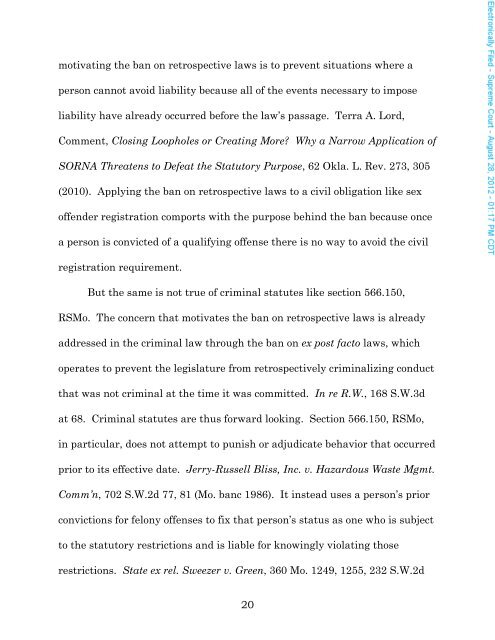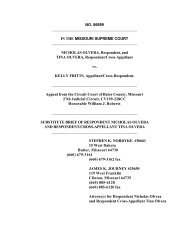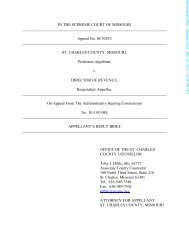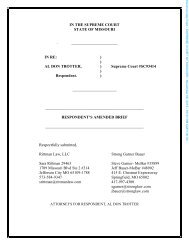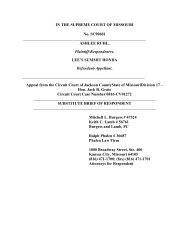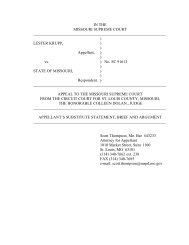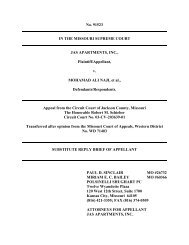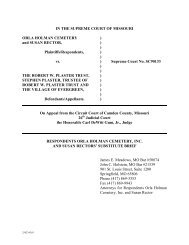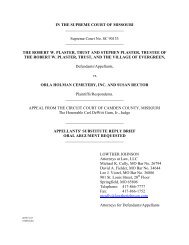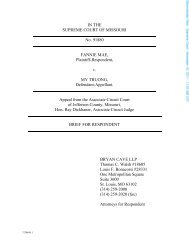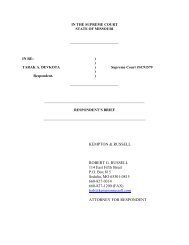In the Supreme Court of Missouri
In the Supreme Court of Missouri
In the Supreme Court of Missouri
You also want an ePaper? Increase the reach of your titles
YUMPU automatically turns print PDFs into web optimized ePapers that Google loves.
motivating <strong>the</strong> ban on retrospective laws is to prevent situations where a<br />
person cannot avoid liability because all <strong>of</strong> <strong>the</strong> events necessary to impose<br />
liability have already occurred before <strong>the</strong> law‟s passage. Terra A. Lord,<br />
Comment, Closing Loopholes or Creating More? Why a Narrow Application <strong>of</strong><br />
SORNA Threatens to Defeat <strong>the</strong> Statutory Purpose, 62 Okla. L. Rev. 273, 305<br />
(2010). Applying <strong>the</strong> ban on retrospective laws to a civil obligation like sex<br />
<strong>of</strong>fender registration comports with <strong>the</strong> purpose behind <strong>the</strong> ban because once<br />
a person is convicted <strong>of</strong> a qualifying <strong>of</strong>fense <strong>the</strong>re is no way to avoid <strong>the</strong> civil<br />
registration requirement.<br />
But <strong>the</strong> same is not true <strong>of</strong> criminal statutes like section 566.150,<br />
RSMo. The concern that motivates <strong>the</strong> ban on retrospective laws is already<br />
addressed in <strong>the</strong> criminal law through <strong>the</strong> ban on ex post facto laws, which<br />
operates to prevent <strong>the</strong> legislature from retrospectively criminalizing conduct<br />
that was not criminal at <strong>the</strong> time it was committed. <strong>In</strong> re R.W., 168 S.W.3d<br />
at 68. Criminal statutes are thus forward looking. Section 566.150, RSMo,<br />
in particular, does not attempt to punish or adjudicate behavior that occurred<br />
prior to its effective date. Jerry-Russell Bliss, <strong>In</strong>c. v. Hazardous Waste Mgmt.<br />
Comm’n, 702 S.W.2d 77, 81 (Mo. banc 1986). It instead uses a person‟s prior<br />
convictions for felony <strong>of</strong>fenses to fix that person‟s status as one who is subject<br />
to <strong>the</strong> statutory restrictions and is liable for knowingly violating those<br />
restrictions. State ex rel. Sweezer v. Green, 360 Mo. 1249, 1255, 232 S.W.2d<br />
20


